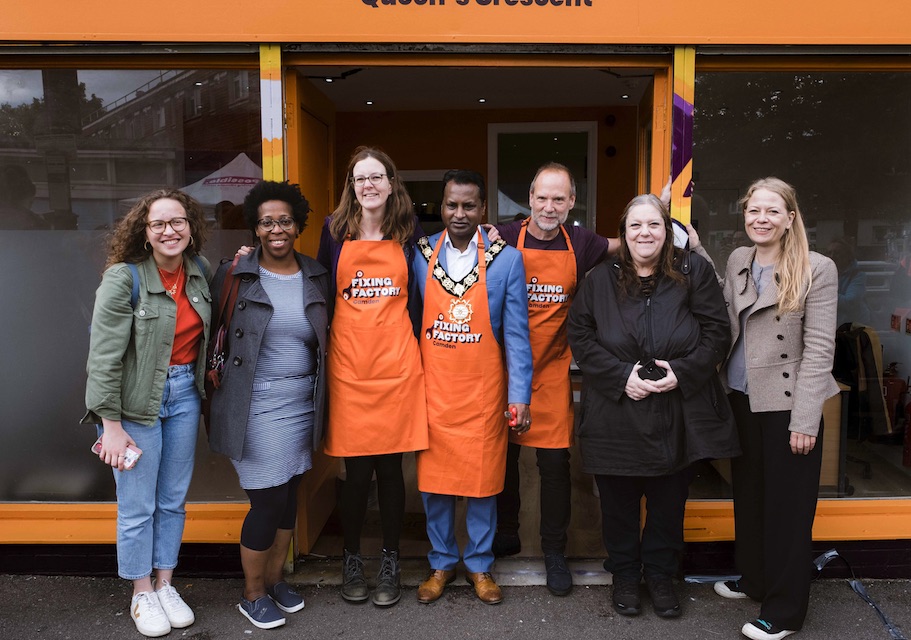Eco 2023: Stop! Before you throw that ‘broken’ toaster in the bin…
The Fixing Factory is saving people from buying more and more things
Friday, 6th January 2023 — By Frankie Lister-Fell

The Fixing Factory on its first day [Mark A Phillips]
EVERY YEAR the UK throws away more than 11 million toasters and 72 items of clothing per wardrobe. This is mostly due to a prevailing “myth” that fixing faulty appliances and clothes is more hassle than replacing it.
But in Camden, two organisations are busting this misconception, one turn of a screw at a time.
The Fixing Factory in Queen’s Crescent opened in October to teach the community on a pay-what-you-feel basis how to repair household electronics.
Each Thursday the organisation, which was made in partnership with climate charity Possible and the Restart Project, runs a “Don’t Throw It Thursday” fixing session from 11am to 2pm where attendees are shown by volunteers how to bring their items back to life.
Project lead Dermot Jones told the New Journal: “Sometimes there’s a gasp from people like ‘Oh, I’m gonna do it, am I?’ And then once they’ve been shown how to, it’s really empowering. I think it can be a fascinating journey for people.
“A lot of the fixes are really quite simple. There’s a small percentage that are really, really tough when we have some volunteer electronics engineers who come in. Part of our mission is to remap how people think about broken things.”
He added: “We’ve got a thing called the cup of tea fix where you make a cup of tea, put it down, get the screwdriver out and then by the time you’ve fixed it you’re drinking the last sip of your tea. So the myth that it takes more time than buying a new one is often not true.”
The Fixing Factory, which is currently run by 12 volunteers, fixes all kinds of appliances, from digital radios to blenders. The most popular item by far is the toaster.
“We call it the classic rescue toaster because people will find them on the street and bring them in,” he said. “We’ve got a whole shelf of rescue toasters. People don’t think they’re fixable but often they’ve just been jammed by extra crumbs.”
One of the motives behind the project was to reduce e-waste.
Mr Jones said: “E-waste is the fastest growing waste stream globally. And it’s a horrible statistic that the UK is on course to becoming the biggest contributor to levels of e-waste in Europe next year.”
Around 360,000 tonnes of clothing is also thrown away in the UK every year. But Reworked Camden in Buck Street Market opened during the pandemic to teach people how to upcycle their unwanted garments via a donation-basis or a fabric swap.
Founder Mark Hall said: “I’ve just been doing lots and lots of free workshops teaching people weaving and mending and how you can be creative with things. It was always about sustainability really. We don’t buy anything new here – other than pins.” People bring their unwanted clothes and turn them into something they would wear.
Mr Hall explained: “If you’ve got something with a hole in it or paint on it, together we come up with an idea to hide the damage but then make it into a feature rather than throwing it away.”
He added: “It’s kind of like riding a bike. It looks hard but once you’ve got stabilisers on it’s really not that hard to do.”
The Fixing Factory is looking for more volunteers, who do not need to have a technical background, to expand their services.